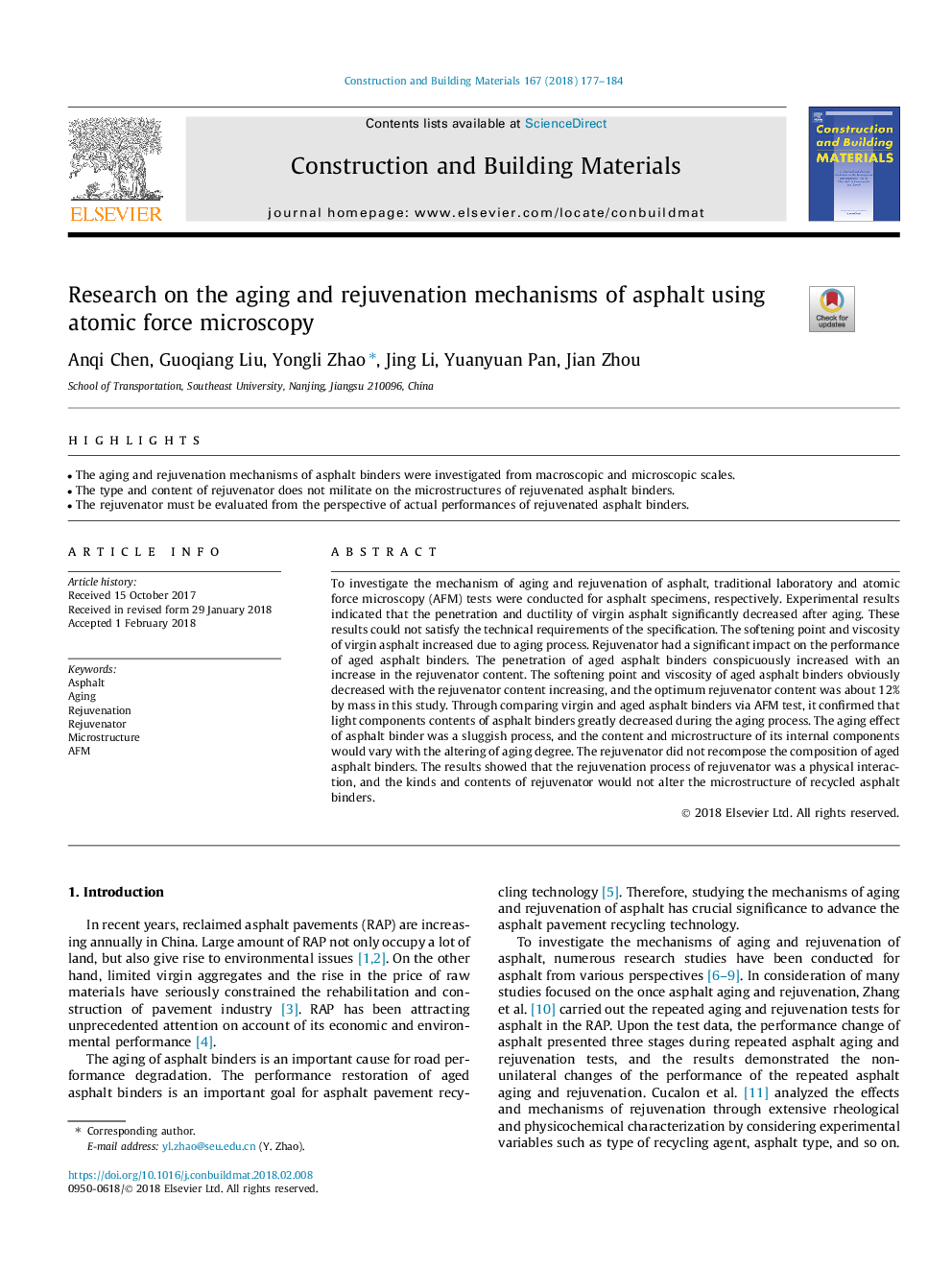| Article ID | Journal | Published Year | Pages | File Type |
|---|---|---|---|---|
| 6714963 | Construction and Building Materials | 2018 | 8 Pages |
Abstract
To investigate the mechanism of aging and rejuvenation of asphalt, traditional laboratory and atomic force microscopy (AFM) tests were conducted for asphalt specimens, respectively. Experimental results indicated that the penetration and ductility of virgin asphalt significantly decreased after aging. These results could not satisfy the technical requirements of the specification. The softening point and viscosity of virgin asphalt increased due to aging process. Rejuvenator had a significant impact on the performance of aged asphalt binders. The penetration of aged asphalt binders conspicuously increased with an increase in the rejuvenator content. The softening point and viscosity of aged asphalt binders obviously decreased with the rejuvenator content increasing, and the optimum rejuvenator content was about 12% by mass in this study. Through comparing virgin and aged asphalt binders via AFM test, it confirmed that light components contents of asphalt binders greatly decreased during the aging process. The aging effect of asphalt binder was a sluggish process, and the content and microstructure of its internal components would vary with the altering of aging degree. The rejuvenator did not recompose the composition of aged asphalt binders. The results showed that the rejuvenation process of rejuvenator was a physical interaction, and the kinds and contents of rejuvenator would not alter the microstructure of recycled asphalt binders.
Related Topics
Physical Sciences and Engineering
Engineering
Civil and Structural Engineering
Authors
Anqi Chen, Guoqiang Liu, Yongli Zhao, Jing Li, Yuanyuan Pan, Jian Zhou,
